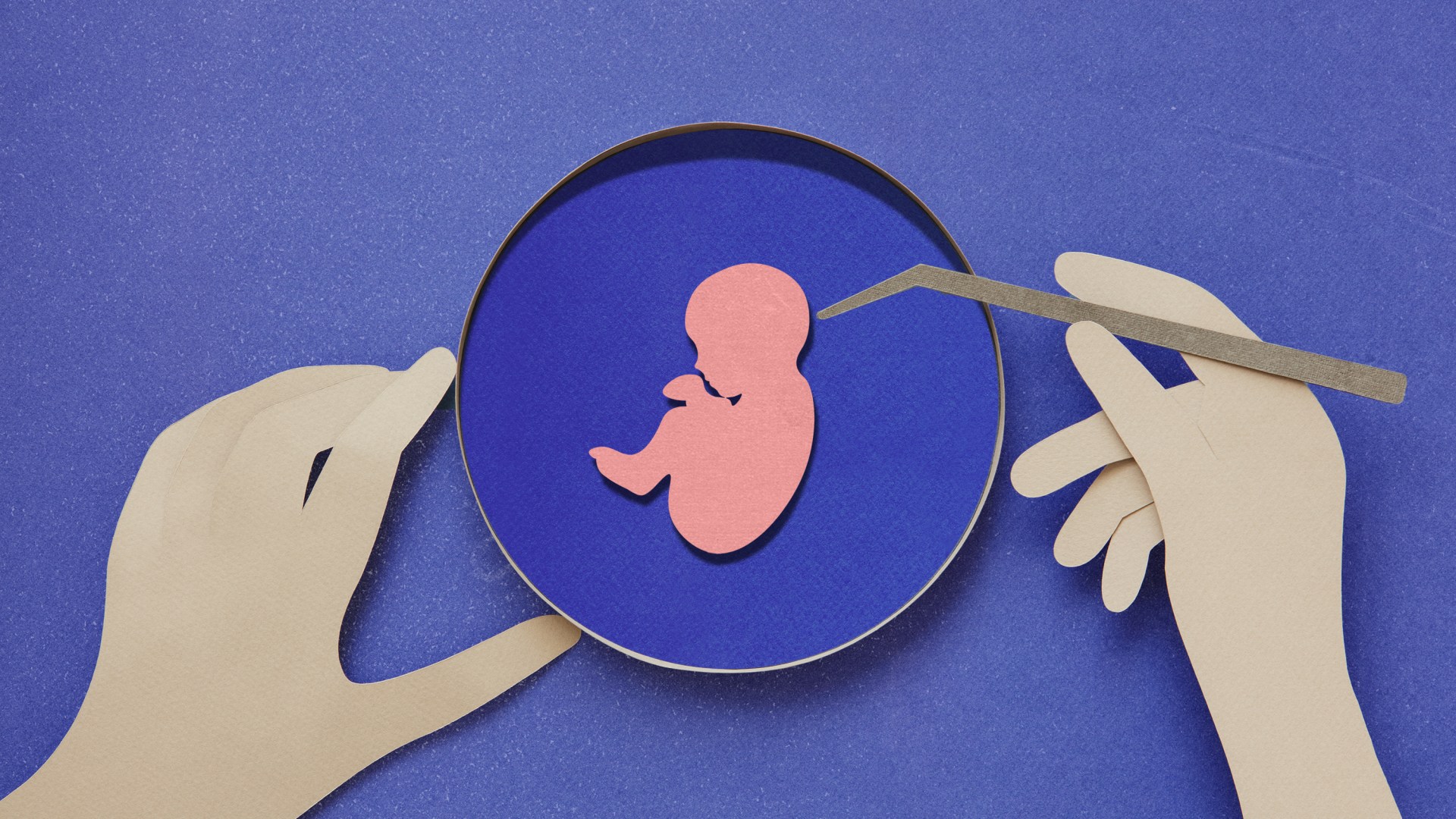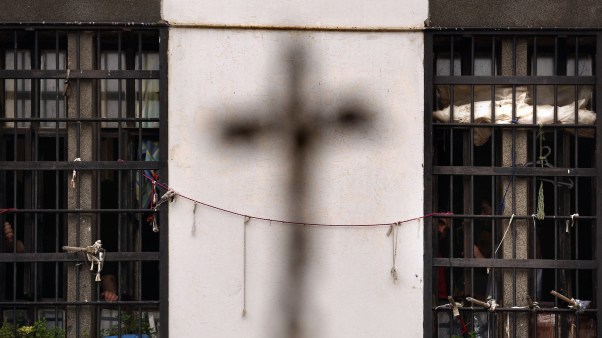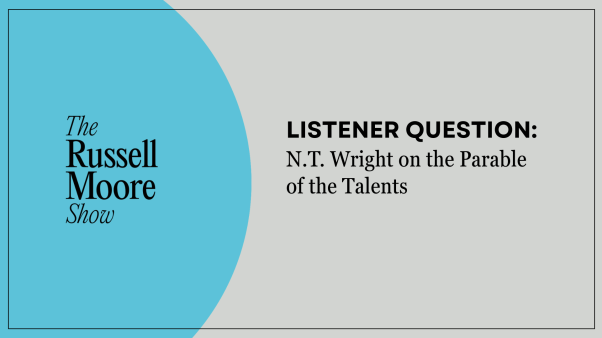When evangelicals speak of the unborn, they’re often thinking of babies growing inside pregnant moms. Even the pro-life mantra of “from womb to tomb” presupposes a womb to carry them.
So as record numbers of Americans grow their families through in vitro fertilization (IVF), Christians who believe that life begins at conception—even if that’s in a petri dish—face new questions and challenges. In response to expanding reproductive technology, pro-life evangelicals are reexamining the theological and ethical concerns around creating and caring for life at its earliest stages.
I wish I had thought more deeply about this in 2015, when I began IVF in a desperate move to become a mother after several years of infertility. But even as a pro-life Christian, I thought primarily of the lives I would carry, not the ethical ramifications of potential leftover embryos. In fact, I wasn’t even aware one could make so many embryos at once, and the doctors at my IVF clinic didn’t inform me of it.
Other Christians whose beliefs about life did come to bear on their journeys through fertility assistance have experienced the tension firsthand. I talked with Jamie Skipper, who began to consider treatments to help get pregnant around 15 years ago. Her staunch pro-life convictions immediately made things harder.
The Skippers were committed to limiting the number of embryos. If each one created was a new life, they didn’t want any “extras” to sit in a freezer or get destroyed in the process. But IVF is a physically demanding and expensive process, so doctors often recommend fertilizing multiple eggs for a higher chance that one will develop into a healthy baby.
Jamie Skipper said finding a pro-life fertility doctor willing to go with their convictions was “like the underground railroad,” a very hush-hush network. They searched and continued to pray.
“The Bible doesn’t say, Don’t do IVF or Do IVF,” Skipper told CT. “What the Bible does say is Pray without ceasing. If you don’t go into this journey with prayer, you won’t know what God wants for you individually.”
After finally meeting a doctor they trusted, the Skippers moved forward, using their first embryo to become pregnant with their daughter and freezing two more to use later.
They became one of millions of US families who have used IVF to conceive. Earlier this year, Pew Research Center found that 42 percent of Americans have used fertility treatments such as IVF or know someone who has, up from 33 percent in 2018.
In survey breakouts provided to CT, white evangelicals were as likely as Americans overall to say they or someone they know had used fertility treatments. Well over 40 percent of white evangelicals, white mainline Christians, and Catholics agreed, compared to just 26 percent of Black Protestants.
Though evangelicals use fertility assistance, they often approach it differently. Things like fertility medications to stimulate ovulation and intrauterine insemination (IUI)—both of which help conceive a baby inside the mother—are less controversial than IVF, which creates embryos in a lab before implanting them.
When it comes to IVF, one survey found that Protestant Christians were largely in favor of embryo creation for a married couple but against sperm and egg donation in IVF. They also opposed preimplantation genetic testing, which screens which embryos to implant.
The evangelical cautions and ethical arguments around IVF draw from beliefs that life begins at conception, all are created in the image of God, and we have a responsibility to protect and sustain life from its earliest stages—the very same foundation as the evangelical movement against abortion. And yet, IVF has historically been left out of the abortion conversation.
“Evangelicals and other Protestants have achieved moral clarity about the evil of abortion. But we remain confused about the ethics of in vitro fertilization, a technology that removes a woman’s egg and fertilizes it with a man’s sperm in a laboratory environment, then reintroduces the now-living embryo into the woman’s uterus for gestation,” noted theologian and ethicist Matthew Lee Anderson in a post for First Things in 2021.
Perhaps pro-life advocates wanted to focus more on those who intended to end life than those who sought to create it. Perhaps they hesitated to speak out against it knowing the painful struggle of Christians in their midst who had turned to fertility assistance. Either way, evangelicals haven’t been as vocal about the ethical ramifications of IVF as they have about abortion procedures, medication abortion, or even Plan B.
But the conversation has expanded, especially in the wake of Roe v. Wade’s overruling in 2022.
“I’m very connected with a lot of pro-lifers who have had their eyes opened to how IVF violates the rights of children, their right to life,” said Katy Faust, the evangelical founder of children’s rights organization Them Before Us. “I think a lot of it is they just didn’t know before, but once you know, you don’t unsee it.”
Faust speaks against the practice of unrestrained embryo creation in IVF, which inevitably results in frozen embryos being destroyed or left on ice indefinitely. Each embryo is, scientifically speaking, a unique person comprised with a distinct DNA code, including things like eye color and gender, just like one conceived in the womb in its early days.
Faust noted how the landmark 2022 Supreme Court ruling revealed an undeniable connection between IVF and abortion. “Why is it that all of the fertility doctors in red states were freaking out after Dobbs?” she asked. “It’s because they [may not be able] to do business there if they can’t destroy human life.”
Right now, abortion laws do not affect frozen embryos, but there have been a couple of state bills that aim to make it so. In Kansas, for example, a bill that criminalized the “unlawful destruction of a fertilized embryo” advanced to the Senate, but the bill has not passed.
And yet, while most Americans see abortion as a “moral issue,” most do not view IVF in such terms. Few resources exist to help guide Christians who may be considering IVF. One online guide offers this piece of advice: For the Christian, “the decision to conceive is always the decision to implant.”
“Toward a Protestant Theology of the Body”—a recent conference named for the papal catechesis on human sexuality, marriage, conception, and personhood—tackled this rising theme. The Institute on Religion and Democracy event showcased an increased aptitude for questions regarding reproduction and the body.
“If I go and speak on this somewhere, a lot of people just assume that I’m Catholic because, for the last couple decades, it’s really only been Catholics that have been talking about this,” said Faust.
Emma Waters, a research associate for The Heritage Foundation’s Center for Life, Religion and Family, said she’s observed a shift in Protestant Christians, theologians, and pastors beginning to reexamine the moral and theological concerns related to IVF.
“Many Southern Baptist churches, the Lutheran Church—Missouri Synod, the Anglican Church of North America, and some within the Presbyterian Church of America are working to educate their congregants about the purpose of a child, and where Christians should draw firm lines in their use of technology,” Waters told Christianity Today.
In the last couple years, I’ve become more educated about the ethics of reproductive technology and the realities of created and commodified lives. It’s caused me to see my own experience with IVF differently and to wish I had been better informed. While the treatment was successful for me, helping me become pregnant with two healthy babies, the remaining embryos I have stored on ice have caused great heartache.
The biggest evangelical concerns around IVF tend to center around the loss of embryos in the process, so families like the Skippers commit to carrying and caring for any embryos they create.
As Jamie Skipper moved forward with IVF, she worried about what would happen to her two frozen embryos if she “got hit by a bus and died” or was unable to implant them for any reason. She ended up drafting a legal will granting custody to close friends in case of her demise. After the will was in place, the Skippers felt peace that they had done everything they could to protect their children.
Two years after the first successful implant, Skipper implanted the last two embryos, which resulted in the birth of her second daughter.
Today Skipper, like some prominent evangelical groups like Focus on the Family and The Gospel Coalition, supports “ethical” IVF, in which the embryos created are made from the biological material of the parents and implanted into the biological mother, and no embryos are frozen or discarded.
The truth about more than a million frozen embryos on ice has become more common knowledge as of late. Prior to that, many Christians unacquainted with IVF didn’t realize this numeric reality. As the conversation has progressed, pro-life advocates have grown bolder in their advocacy against IVF procedures that create extra embryos.
Several years ago, Live Action founder Lila Rose, who is Catholic, came out against this kind of IVF, and many Christian commentors criticized her stance because of their personal experiences. Because so many Christians have participated in IVF to grow their families, it can be difficult to speak out against it in pro-life contexts.
Remaining true to biblical conviction, however, is more important than avoiding hurt feelings. I want to offer women the kind of resource I wish I had when I began IVF; Skipper and I both see a lack of Christian resources around IVF and plan to write a guide for couples considering potential IVF treatment.
But some evangelicals have moral reservations that extend beyond the potential loss of embryos and don’t support any form of IVF. Anderson, writing for First Things, argues that “the doctrine of the imago Dei illuminates the problem of wrongful creation, not only of wrongful killing.”
In her book Conceived by Science, Stephanie Gray Connors writes of how the process “commodifies” children through the freezing and grading of embryos deemed best to implant in the womb.
“With this motivation, no longer is the human person valued for his or her uniqueness and nature of being an image bearer,” she wrote. “Instead, the person is valued, wanted and selected for the usefulness they provide to others.”
She notes that the freezing process itself poses a risk to the embryo’s life, so it can’t be ethical to “endanger the lives of some children in an effort to create other children.”
Christians heading up the nation’s leading pro-life organizations are beginning to vocalize their concerns about IVF more broadly as well.
Steve Aden, chief legal officer at Americans United for Life, told The Guardian that once people fully understand the implications of traditional IVF, they will “turn away from this creation and freezing of hundreds of thousands of distinct individual human beings who remain in limbo forever or are ultimately cast off as if trash.”
Since her experience with IVF, Skipper has become passionate about educating others about the realities of IVF and excessive embryo creation. As a national health care policy expert, Skipper feels privileged to understand the business of health care. Most people, she said, aren’t aware of the details or monetary motivations behind them.
High success rates are important to clinics, as this often results in more funding and patients.
When mothers choose alternative IVF routes, like refusing to create as many embryos, pregnancy success is less likely, reflecting on clinic rates as a whole. Thus, evangelical pro-lifers are bad for business.
“You should be able to ask specific questions to your specialist to make sure it’s done in a way that 100 percent respects your pro-life stance,” said Skipper. “And if they try to explain to you that science doesn’t work that way or whatever—run for the door, because that’s the first sign that they’re not going to support you.”












